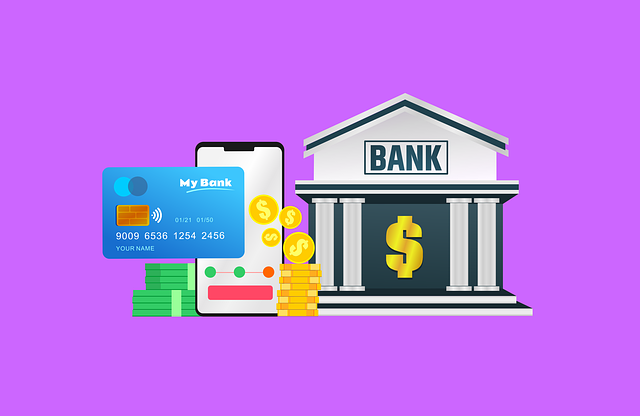
As online shopping and real estate transactions increase, it's critical to prioritize cybersecurity to protect sensitive data. This includes using secure browsing habits like trustworthy antivirus software, security updates, complex passwords, and a VPN when on public Wi-Fi. For those involved with communities like Anonymous or online gaming, where information is particularly sensitive, two-factor authentication (2FA) is essential for added security. Staying vigilant against phishing attempts and malware, regularly updating software, and verifying e-commerce platform authenticity are all crucial steps for safe online shopping. In the realm of real estate, secure browsing practices must be stringent to safeguard financial details, with reliance on reputable platforms offering encrypted communication channels. Implementing 2FA and rigorous verification processes for property apps or software, as advocated by Secure Browsing for Online Gamers Anonymous (SBOGAA), are key measures to protect personal information and maintain confidentiality. Due diligence is paramount when dealing with financial transactions, with the need for payment gateways featuring fraud protection and customer support. The principles of SBOGAA emphasize transparency through detailed property imagery and buyer protection programs on established platforms, fostering trust and integrity in online real estate deals. By following these guidelines, homeowners and investors can ensure secure and successful transactions, while also safeguarding their digital activities against cyber threats.
navigating the digital marketplace, homeowners and real estate investors must prioritize online security. With the rise of e-commerce, securing transactions extends beyond retail purchases; it’s critical in property investments too. This article delves into cybersecurity essentials, best practices for safe transactions, and identifies reliable platforms within the real estate sector. It also explores the use of VPNs and encryption tools to shield your activities from prying eyes. Whether you’re a seasoned investor or a first-time homebuyer, understanding these measures is paramount to safeguarding your financial wellbeing in the online realm.
- Understanding Cybersecurity Essentials for Homeowners and Real Estate Investors Shopping Online
- Best Practices for Secure Transactions: Tips for Protecting Your Financial Information While Purchasing Property Online
- Navigating Safe Marketplaces: A Guide to Verified Listings and Reliable Sellers in the Real Estate Sector
- Utilizing Virtual Private Networks (VPNs) and Other Encryption Tools to Safeguard Your Online Activities as a Homeowner or Investor
Understanding Cybersecurity Essentials for Homeowners and Real Estate Investors Shopping Online

Homeowners and real estate investors engage in online shopping with increasing frequency, making cybersecurity a paramount concern. To safeguard personal and financial information when purchasing goods or services online, it’s essential to prioritize secure browsing practices. This includes utilizing reputable antivirus software, maintaining up-to-date security protocols on devices, and employing complex passwords unique to each account. Additionally, homeowners should invest in a virtual private network (VPN) to encrypt data transmission, especially when accessing shopping platforms from public Wi-Fi networks. For those who are also online gamers or part of communities like Anonymous, the stakes are even higher due to the sensitive nature of the information they handle. Implementing two-factor authentication (2FA) adds an extra layer of security, ensuring that only authorized individuals can access accounts, which is a critical step for anyone looking to maintain privacy and security online.
In the realm of secure online shopping, homeowners and real estate investors must be vigilant against phishing scams and malware. Regularly updating software and operating systems helps protect against vulnerabilities that could be exploited by cyber threats. It’s also advisable to verify the legitimacy of e-commerce platforms before making any transactions. By staying informed about the latest cybersecurity trends and threats, homeowners and investors can make more secure choices when shopping online. For gamers within communities such as Anonymous, the importance of digital privacy cannot be overstated. They must be particularly cautious with their activities, ensuring that their online presence remains private and secure, not only for their personal safety but also to protect any sensitive data they may come across or discuss within their groups.
Best Practices for Secure Transactions: Tips for Protecting Your Financial Information While Purchasing Property Online

When engaging in online real estate transactions, prioritizing secure browsing practices is paramount to safeguard your financial information. Homeowners and investors alike must be vigilant as they navigate the digital marketplace. Utilize reputable platforms that offer encrypted communication channels to ensure that sensitive data, such as personal identification details and payment information, are protected from cyber threats. Employing two-factor authentication (2FA) on all accounts associated with your online activities adds an extra layer of security. Be cautious when downloading apps or software related to your property purchase; verify the developer’s credibility beforehand.
Moreover, conduct thorough research on the online service providers and read reviews from previous users to ascertain their reliability and the robustness of their security measures. Keep your operating system, antivirus software, and web browser up to date to shield against the latest malware and phishing attacks. Be wary of unsolicited communications offering property deals; these are often scams designed to steal your information. Lastly, when making payments for property transactions online, use secure payment gateways that offer fraud protection and have a clear and responsive customer support system in place should you encounter any issues. By adhering to these best practices, you can navigate the complexities of online real estate transactions with greater confidence and security.
Navigating Safe Marketplaces: A Guide to Verified Listings and Reliable Sellers in the Real Estate Sector

When engaging in online real estate transactions, homeowners and investors alike must prioritize security to protect their investments. Navigating safe marketplaces is paramount, as it ensures that the listings one encounters are verified and the sellers are reliable. Prospective buyers can start by choosing reputable platforms known for their strict vetting processes. These platforms often feature listings with comprehensive details and high-quality images, providing transparency that helps in making informed decisions. Additionally, they offer buyer protection programs and secure payment options to safeguard transactions. It’s crucial to look for marketplaces with a robust feedback system, allowing users to read reviews and ratings from previous buyers. This due diligence not only contributes to the integrity of the transaction but also fosters trust within the community. For those who are part of online communities like Secure Browsing for Online Gamers Anonymous, the principles of vigilance and verification are ingrained in their daily practices, which can translate well into the realm of online real estate shopping. By applying the same level of scrutiny and caution used in these gaming communities, individuals can navigate the real estate marketplaces with greater confidence and security. Always verify the legitimacy of listings through official records or direct verification from the seller before proceeding with any financial commitments.
Utilizing Virtual Private Networks (VPNs) and Other Encryption Tools to Safeguard Your Online Activities as a Homeowner or Investor

Homeowners and real estate investors engage in online activities that require a high level of security due to the sensitive nature of their transactions. To maintain secure browsing while navigating property listings, mortgage rates, and financial services, it is imperative to employ robust cybersecurity measures. One such measure is the use of Virtual Private Networks (VPNs), which create a secure and encrypted connection between your device and the internet. This encryption scrambles your data, preventing eavesdroppers from accessing your sensitive information, such as personal financial details or login credentials. Additionally, VPNs can mask your IP address, providing an extra layer of privacy by making it appear as if you are browsing from a different location.
Furthermore, incorporating other encryption tools into your online routine enhances the security of your activities. For instance, Two-Factor Authentication (2FA) adds an additional step to the login process, ensuring that even if your password is compromised, unauthorized users cannot gain access to your accounts. Secure Browsing for Online Gamers Anonymous (SBOGAA) might seem like a niche application, but its principles of encryption and secure connections are applicable across various online platforms, including those used by homeowners and investors. By adopting these tools and best practices, you can significantly reduce the risk of cyber threats, safeguarding your online presence and personal data from potential breaches, whether you’re purchasing a new home or analyzing investment opportunities in the real estate market.
Homeowners and real estate investors alike can navigate the digital marketplace with confidence by prioritizing cybersecurity measures. Adopting cybersecurity essentials, engaging in best practices for secure transactions, familiarizing oneself with verified listings on trusted platforms, and leveraging encryption tools like VPNs are all critical steps in safeguarding financial information and personal data while shopping online. By integrating these strategies into their routine, individuals can engage in secure browsing activities, akin to those recommended for online gamers, and minimize the risks associated with real estate transactions on the internet. As such, it is clear that with due diligence and prudent use of technology, online shopping for property can be both convenient and secure, ensuring a safer experience for all involved parties.





